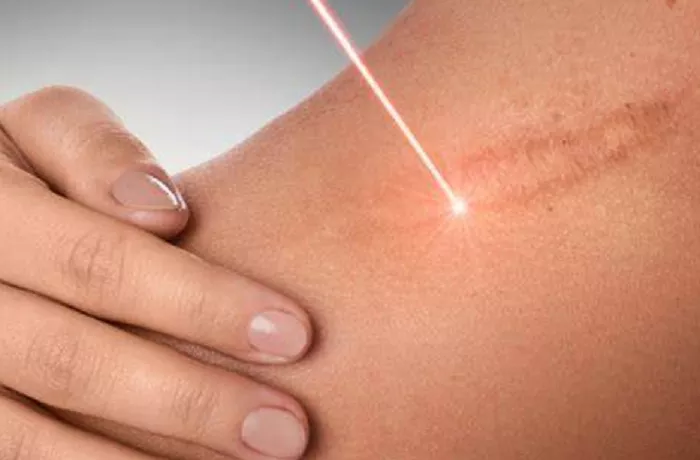Laser scar revision is a non-invasive cosmetic procedure that uses focused light energy to improve the appearance of scars. This treatment can reduce redness, smooth texture, and stimulate collagen production, making scars less noticeable. It’s suitable for various scar types, including acne scars, surgical scars, and burn scars. Laser therapy is often preferred over surgical options due to its minimal downtime and lower risk of complications.
What is Laser Scar Revision
Laser scar revision works by targeting scar tissue with concentrated light beams. The laser penetrates the skin’s layers, breaking down scar tissue and promoting the growth of new, healthy skin cells. This process can flatten raised scars, reduce discoloration, and improve overall skin texture.
Types of Lasers Used
Different lasers are used depending on the scar’s characteristics:
- Ablative Lasers: These remove the top layer of skin, making them effective for deep scars. Examples include CO2 and Er:YAG lasers.
- Non-Ablative Lasers: These heat the underlying skin tissue without removing the top layer, stimulating collagen production. They are suitable for less severe scars.
- Fractional Lasers: These target a fraction of the skin at a time, allowing for quicker healing. They can be either ablative or non-ablative.
Benefits of Laser Scar Revision
- Improved Appearance: Reduces the visibility of scars by smoothing and evening out the skin.
- Minimal Downtime: Most patients can resume daily activities shortly after the procedure.
- Stimulates Collagen Production: Enhances skin elasticity and firmness.
- Non-Invasive: Lower risk compared to surgical scar revision methods.
Risks and Considerations
While laser scar revision is generally safe, potential risks include:
- Redness and Swelling: Common side effects that usually subside within a few days.
- Changes in Skin Pigmentation: Some patients may experience temporary lightening or darkening of the skin.
- Infection: Rare, but possible if post-treatment care instructions are not followed.
It’s essential to consult with a qualified dermatologist or plastic surgeon to determine if laser scar revision is appropriate for your specific case.
Conclusion
Laser scar revision is an effective treatment for reducing the appearance of various types of scars. By understanding the procedure, benefits, and potential risks, individuals can make informed decisions about their scar treatment options. Always consult with a healthcare professional to determine the best approach for your skin type and scar condition.
Related topics:


